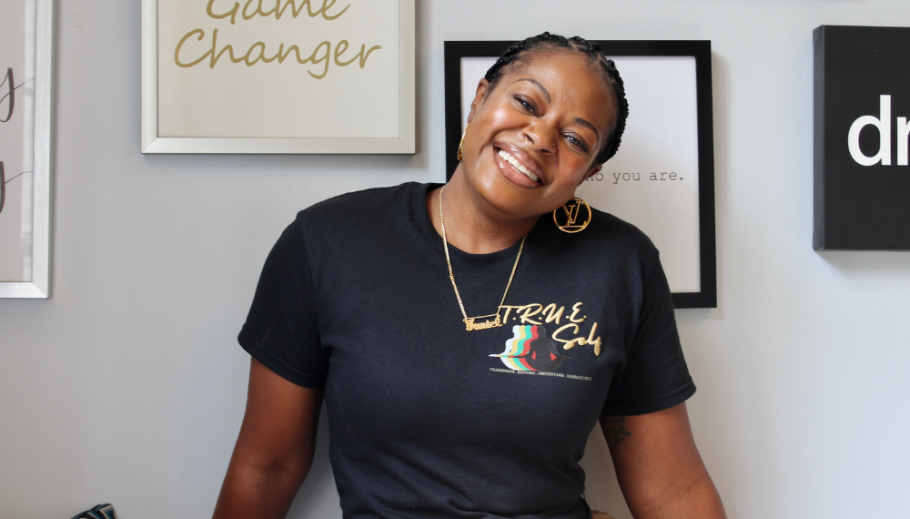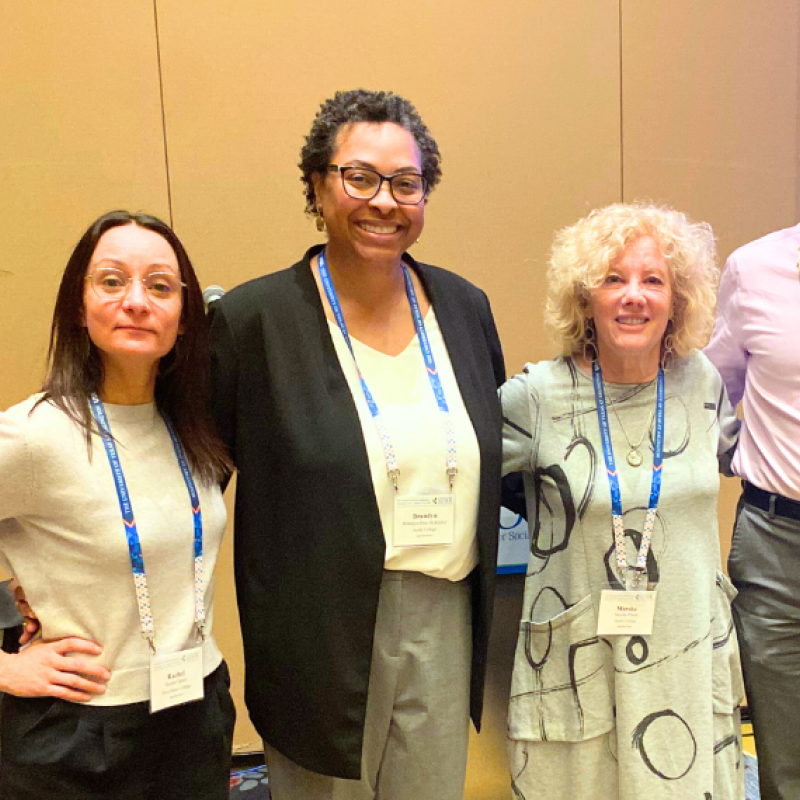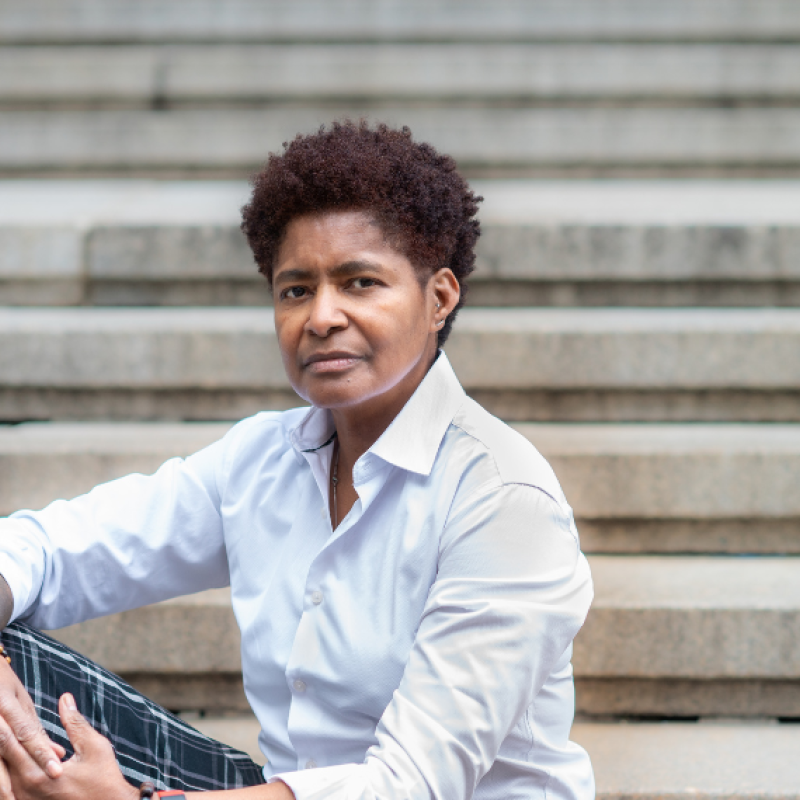Shared stories and experiences, including in the course of doing dissertation research, can bring unexpected validation and connection, and deepen the research itself.
Congratulations to Nicole Wilson-Faniel, D25, who successfully defended her dissertation, “Black Mental Health Clinicians Navigating And Surviving Racial Trauma In White Clinical Work Spaces,” after years of dedication, research and practice.

Wilson-Faniel’s experience working in predominantly white institutions inspired her to explore how Black mental health clinicians experience racial trauma during their work in similar environments, and the impacts on clinicians’ lives. Importantly, her dissertation and work reveal the systemic challenges faced by Black clinicians in these spaces, and seek to amplify and share their experiences.
Her dissertation was deeply influenced by her personal and professional experiences, and the validation in the stories of other Black clinicians inspired and gave her an even stronger sense of purpose. “It has strengthened my resolve to advocate for institutional change, prioritize mental wellness among Black providers, and use scholarship as a tool for visibility, healing, and liberation in clinical spaces,” she says.
Witnessing the power of the stories and shared experiences was rewarding and validating to Wilson-Faniel, who says that being able to see “how Black clinicians found healing, validation, and empowerment simply by having a space to speak their truth,” had a lasting impact on her.
Holding these painful narratives while having her own similar experiences was a challenge, but she was able to learn to shift that pain into dedicated action, advocacy and community care, including her research.

Wilson-Faniel hopes her work will bring greater awareness to the experiences of Black mental health clinicians, and shift institutions whose embedded systemic racism is causing harm to create more affirming and equitable workplaces. “Ultimately, I want this research to inspire policy changes, inform culturally responsive training, and empower clinicians and educators to center racial justice in both practice and pedagogy,” she says.
Completing a dissertation is an enormous individual accomplishment, but what makes something of this magnitude possible is community. Wilson-Faniel wanted to thank her husband Rashaar Faniel, her mother Esmine Green, and her dissertation committee, Professors Peggy O’Neill, Brandyn McKinley, and Tanya Greathouse, who supported and encouraged her throughout the journey.
What’s next for Wilson-Faniel? She says she will continue her research on the impacts of racial trauma on Black mental health clinicians, and “expand the conversation around institutional accountability and healing.” Bringing the depth of her research, personal and clinical experience to teaching future clinicians within academia, her strong grounding in equity, racial and social justice and cultural humility will allow her to train clinicians who can continue the work of transforming social work practice.


